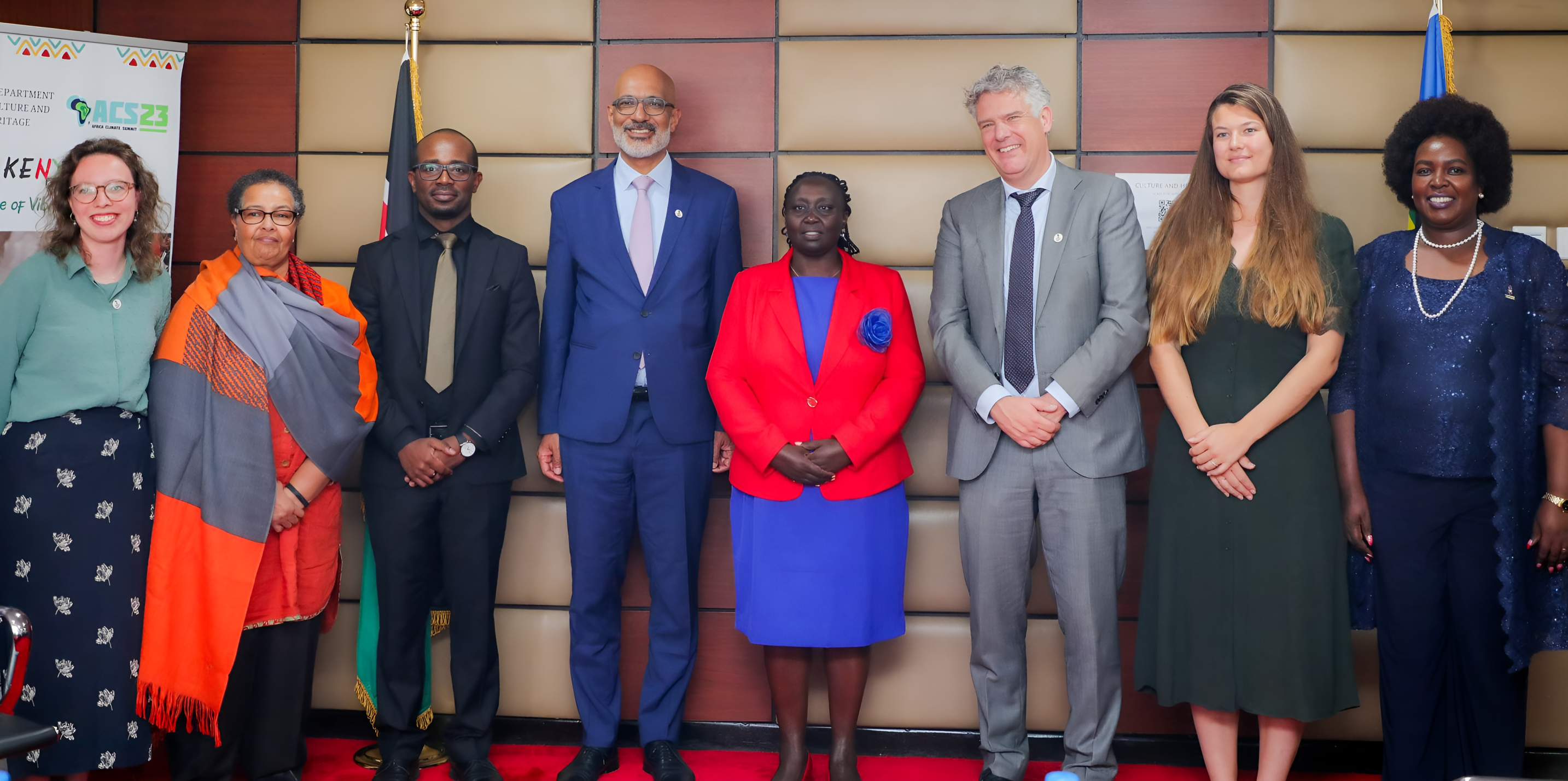Kenya and the Netherlands have entered into a partnership aimed at eliminating Female Genital Mutilation (FGM), child marriage, and other harmful cultural practices by the year 2026.
The collaboration was announced following bilateral discussions held at the Ministry of Gender, Culture, the Arts and Heritage.
Cabinet Secretary Hannah Cheptumo hosted a delegation from the Netherlands led by Deputy Ambassador Joris van Bommel.
During the meeting, CS Cheptumo expressed her appreciation for the alliance, describing it as a timely step that strengthens international efforts to safeguard the rights and well-being of women and girls.
"FGM is a gross violation of human rights. It denies girls the opportunity to live full, healthy, and empowered lives," she said.
"We are firmly dedicated to ending this practice and deeply appreciate allies like the Netherlands who support us in this vital cause," said CS Cheptumo.
Data from the 2022 Kenya Demographic and Health Survey reveals that FGM remains widespread in specific communities, reaching 93.6% among the Somali and 86% among the Samburu.
Despite its criminalization under the Prohibition of Female Genital Mutilation Act of 2011, FGM continues to be practiced, presenting significant challenges to public health and human rights.
CS Cheptumo highlighted current government initiatives aimed at tackling FGM, including the enforcement of existing laws, the creation of Gender-Based Violence (GBV) courts, the provision of safe shelters for survivors, and coordinated efforts with the ministries of health, education, and social protection.
She emphasized the critical role of involving religious and community leaders in transforming cultural perceptions.
"We’re actively partnering with male champions and religious leaders—especially within the Muslim community—through the Inter-Religious Council of Kenya. This grassroots approach is proving effective in reshaping societal norms," she stated.
Cheptumo also pointed to the positive impact of a previous collaboration with the Finnish government, which bolstered anti-FGM efforts in three high-prevalence counties.
However, she voiced concern about the program’s future, noting that its funding is scheduled to conclude in March 2025.
"We cannot afford to reverse the progress achieved. Long-term partnerships are crucial to maintaining support in at-risk communities," she stressed.
Joris praised Kenya’s strides in advancing gender equality and reaffirmed the Netherlands’ commitment to strengthening its partnership with Kenya in combating FGM and gender-based violence.
"We acknowledge the effectiveness of Kenya’s approach and are committed to supporting initiatives that safeguard girls and uplift communities," he stated.
The meeting concluded with a mutual agreement to draft a strategic partnership roadmap focused on fast-tracking the elimination of harmful cultural practices and promoting gender justice across the country.
